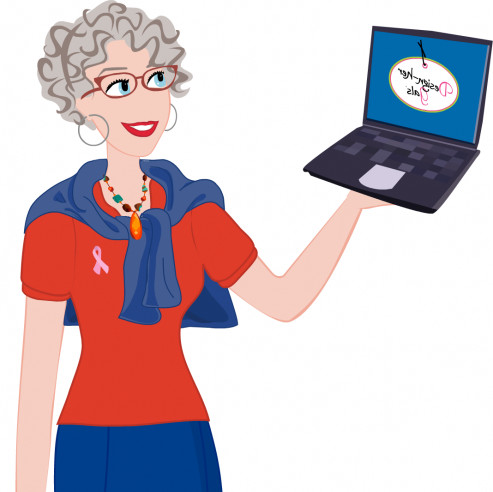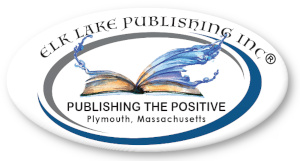Choose The Best Publisher

What should you be looking for in a publisher?
- Does the publisher have a good reputation in the industry? With the proliferation of small, boutique publishers popping up constantly, you want to ensure the publisher you choose is honest and has a good image.
- Has the publisher got a track record? How many books have they published? How many books do they publish in a year? You want to make sure your publisher is not a fly-by-night. They should have published books for a while and have a significant list of books available.
- How do they operate? There are a variety of different kinds of publishers. You’ll find pay-to-print or vanity presses—who’ll publish anything as long as you pay them. Hybrid publishers are a combination of pay-to-print and traditional. You’ll need to read their contract carefully (you should read ALL contracts carefully). Some hybrids do not offer any editing—what you send them is what gets printed, errors and all, and they require you purchase a significant number of books. Traditional or royalty publishers range from large, multi-imprint ones like Tyndale, Broadman/Holman, and Baker Books to small-medium, independent publishers like Iron Stone Media, Olivia Kimbrell Press, and Elk Lake Publishing, Inc.
- Does the publisher require query letters? Proposals? Do they accept simultaneous submissions? Unagented authors?
- What kind of contract does the publisher offer? What rights are claimed by the publisher and what rights are left to the author—are rights negotiable? If so, which ones? How long is the contract period? Does the publisher require you to submit new works to them before shopping them to other publishers? ALWAYS read everything in the contract carefully.
- What genres do they publish? Fiction? Nonfiction? Devotionals? Bible Studies? Poetry? Children’s Books? If Fiction, what areas? Romance, Historical, Contemporary, Mystery/Suspense, Fantasy/Science Fiction/Supernatural?
Elk Lake has more than two hundred authors and in excess of four hundred books in print.
Elk Lake does not pay advances but does pay forty percent (40%) royalties to their authors. No costs incur to the authors during the publishing process and the publisher, Deb Haggerty, pays personal attention to each author and work in progress.
Elk Lake does not require query letters but does require a proposal. We will accept simultaneous submissions and unagented authors. Look for our guidelines under the Submissions tab.
Elk Lake has a straightforward contract. We will negotiate some, but not all, rights. We have a five-year term which automatically renews if not rescinded. If the author’s book has not sold one hundred copies at the end of a year, the author may request the rights back. We specify the royalty amount in the contract and how those royalties will be paid.
As of this point in time, Elk Lake is accepting all genres with a Christian worldview except Horror, Cookbooks, and Poetry.
Choose The Best Publisher

What should you be looking for in a publisher?
- Does the publisher have a good reputation in the industry? With the proliferation of small, boutique publishers popping up constantly, you want to ensure the publisher you choose is honest and has a good image.
- Has the publisher got a track record? How many books have they published? How many books do they publish in a year? You want to make sure your publisher is not a fly-by-night. They should have published books for a while and have a significant list of books available.
- How do they operate? There are a variety of different kinds of publishers. You’ll find pay-to-print or vanity presses—who’ll publish anything as long as you pay them. Hybrid publishers are a combination of pay-to-print and traditional. You’ll need to read their contract carefully (you should read ALL contracts carefully). Some hybrids do not offer any editing—what you send them is what gets printed, errors and all, and they require you purchase a significant number of books. Traditional or royalty publishers range from large, multi-imprint ones like Tyndale, Broadman/Holman, and Baker Books to small-medium, independent publishers like Gilead, Light House Publishing of the Carolinas, and Elk Lake Publishing, Inc.
- Does the publisher require query letters? Proposals? Do they accept simultaneous submissions? Unagented authors?
- What kind of contract does the publisher offer? What rights are claimed by the publisher and what rights are left to the author—are rights negotiable? If so, which ones? How long is the contract period? Does the publisher require you to submit new works to them before shopping them to other publishers? ALWAYS read everything in the contract carefully.
- What genres do they publish? Fiction? Nonfiction? Devotionals? Bible Studies? Poetry? Children’s Books? If Fiction, what areas? Romance, Historical, Contemporary, Mystery/Suspense, Fantasy/Science Fiction/Supernatural?
Elk Lake has more than fifty authors and in excess of one hundred books in print.
Elk Lake does not pay advances but does pay forty percent (40%) royalties to their authors. No costs incur to the authors during the publishing process and the publisher, Deb Haggerty, pays personal attention to each author and work in progress.
Elk Lake does not require query letters but does require a proposal. We will accept simultaneous submissions and unagented authors. Look for our guidelines under the Documents tab.
Elk Lake has a straightforward contract. We will negotiate some, but not all, rights. We have a five-year term which renews automatically if not canceled by the author or Elk Lake. If the author’s book has not sold one hundred copies at the end of a year, the author may request the rights back or Elk Lake may elect to return the rights. We specify the royalty percentage in the contract and how those royalties will be paid. We would like the first look at any new works on an exclusive basis for thirty (30) days.
As of this point in time, Elk Lake is accepting all genres with a Christian worldview except Bible Studies, Devotionals, and Poetry.
